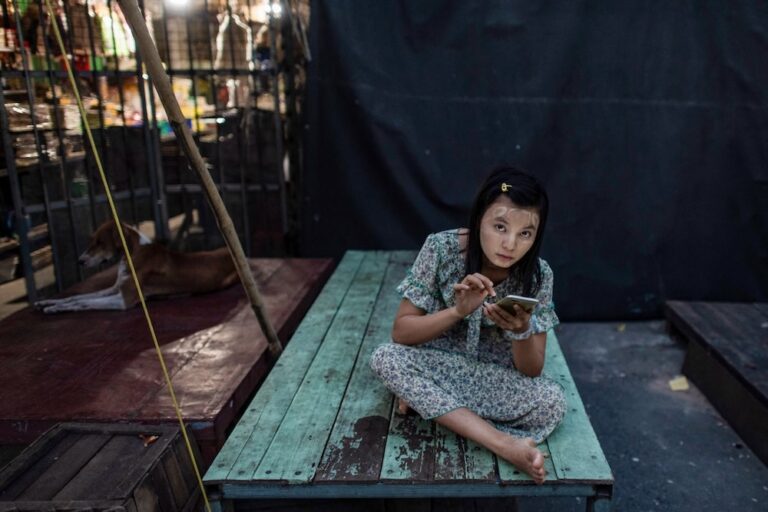(Mizzima/IFEX) – The following is a statement from Mizzima News, an interim member of IFEX: Censorship board bans celebrities’ work after September protest Cartoonists and film actors are persona non grata in military-ruled Burma. The country’s censorship board has once again banned caricatures by the famous cartoonist Awpikye after he joined a group of Burmese […]
(Mizzima/IFEX) – The following is a statement from Mizzima News, an interim member of IFEX:
Censorship board bans celebrities’ work after September protest
Cartoonists and film actors are persona non grata in military-ruled Burma. The country’s censorship board has once again banned caricatures by the famous cartoonist Awpikye after he joined a group of Burmese celebrities in offering “Swan” (food) to monks leading the protests in September 2007.
“Newspaper publishers told us that the censorship board has banned cartoons drawn under his pen-name,” Awpikye’s wife told Mizzima.
As is normal, Burma’s Press Scrutiny and Registration Board, under the Ministry of Information, has not provided any reason for banning Awpikye’s caricatures.
Burmese literary circles believe that Awpikye’s work has been banned because of his involvement in the Swan offering by veteran politician U Win Naing to protesting monks at Shwe Dagon pagoda in September. A few celebrities, including the actor and critic Zarganar, who joined the Swan offering, have been arrested.
The Burmese censorship board has long been in the habit of banning writers and artists known to be critical of the authorities, and Awpikye is no exception.
“He has been banned several times by the board and he is not surprised. Even when he is permitted, the board will find faults in his caricatures and not allow them to be published,” his wife added.
Awpikye, a veteran cartoonist, has been publishing cartoons and caricatures in magazines for over two decades.
Meanwhile, the Burmese video censorship board is using delaying tactics to block the release and screening of an HIV awareness film, in which prominent Burmese actor Kyaw Thu plays the lead role, sources said.
On 8 October, the board denied permission when PSI Myanmar, a non-governmental organisation, applied for permission to distribute the 45-minute awareness-raising film, entitled “Ahkyuanmeh Hlonegyoneyar” (“Total Security”).
“We sought permission from the censorship board to distribute and screen it. We wanted to know whether we could start screening it. But they refused and told us not to screen the film. We don’t know the reason,” Shwe Zin Htike from PSI Myanmar told Mizzima.
The video censorship board told Mizzima that the film has been “temporarily suspended” from release.
The film depicts how a married man, played by Kyaw Thu, working as a boatman, is infected with HIV after visiting a Karaoke club. He, in turn, passes the virus onto his wife.
The film, shot in 2002 by PSI Myanmar, aims to create HIV awareness among boaters working on the Irrawaddy River.
Kyaw Thu had joined veteran politician U Win Naing’s Swan offering to monks on 24 September, along with several other Burmese celebrities. Following the Swan offering, on 25 September U Win Naing and actor and critic Zarganar were arrested by the authorities, but Kyaw Thu remained at large.
While rumours circulated in Rangoon that Kyaw Thu, who heads the free funeral service association, and his wife, Shwe Zikyuat, were arrested on 11 October, no independent verification has been possible so far.
According to an Assistance Association for Political Prisoners (AAPP) report, at least 12 were killed and thousand of monks, students and activists were arrested following September’s anti-government protests against a fuel price hike in Burma. At least 40 people have been missing since the brutal 28 September crackdown on peaceful demonstrators. The military destroyed much of the evidence of the killings and over 40 detainees were sent to very remote areas of the country without any legal provision.
Meanwhile, the regime keeps monitoring Internet connections for information outflow and public access Internet cafes have been strictly limited since the first week of October. Internet access is only available after 10:00 p.m. (local time), the hour of the curfew, and is thereby limited to those with a connection at home.
The military regime’s propaganda newspapers also accused foreign radio stations, including BBC, VOA and RFA, of creating political instability in the country.


